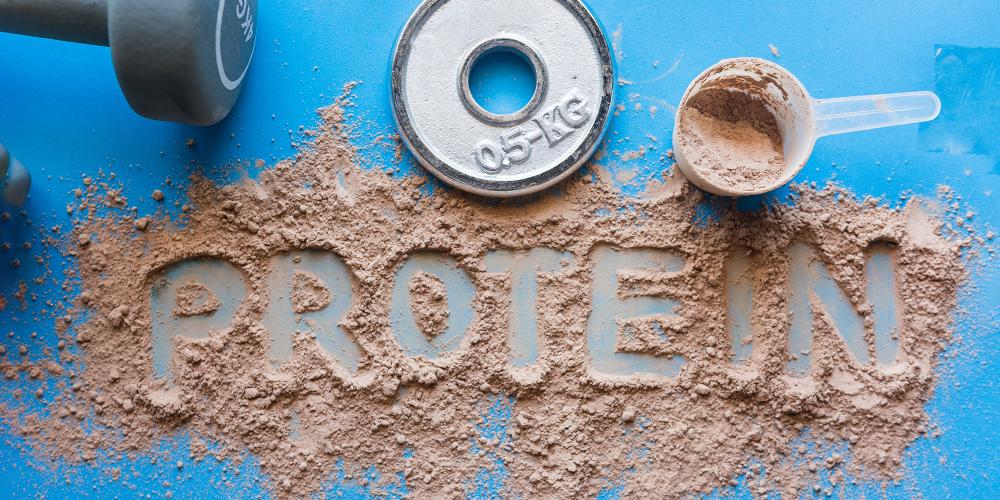
Why Protein Is Important As You Enter Midlife And Beyond
Entering midlife frequently entails gaining weight and losing muscle mass. However, increasing your protein consumption could potentially reduce these effects.
Why is Protein Important?
From the age of 30, we lose our muscle mass by approximately 3–8% per decade, although this accelerates from the age of 50.1 Sarcopenia is the term used for the loss of muscle mass, muscle strength and the loss of the coordination of muscle movements vital for daily activities, particularly in the elderly.2
Protein is a vital nutrient that your body needs every day. Carbohydrates provide your body with energy, whilst protein helps your muscles to recover and repair more quickly after exercise.
Many of us are guilty of how we associate protein. We tend to associate high protein diets with body builders, those involved in trying to achieve a sculpted look, or trying to lose weight. Protein is vital for ageing adults as it supports muscle health, promotes bone strength, and sustains physical and mental function. Maintaining muscles is very important for the over 50s and for those who are dieting. We use the protein we eat in our food to support growth and maintenance of our muscles, tendons, ligaments, and bones, as well as to make skin, hair, and nails.
How Much Should I Have?
The Department of Health advises that all adults, regardless of age, we need around 50 grams of protein every day. This easily achievable in a normal daily diet but this is only applicable if you are relatively inactive or under the age of 50. There is evidence to support the need to eat more protein if you are older, engage in sport activities or are trying to lose weight. The actual recommended daily intake for older adults, aside from age, also depends on sex, weight, and the amount of exercise or activity a person undertakes. In general, older adults should be aiming for 1.2 grams of protein per kilogram of body weight. For someone who weighs 68 kilos, or 150 pounds, this equates to 82 grams of protein per day. This figure is only the minimum recommendation and active people need more and those recuperating from an injury or illness.
Whether you prefer animal-based or plant-based protein, make sure you incorporate a variety of different sources of protein, and ideally, try to supplement the gap of your daily protein requirements.
Our Recommendations
Clean Lean Smooth Vanilla by Nuzest: This unique pea protein formula is 100% plant-based, low in allergens and extremely low in carbohydrates.
Vanilla Keto Protein by Pulsin: This is a plant based protein powder that delivers a balanced keto ratio of fat-to-protein-to-carbs for your low-carbohydrate diet or keto diet
Organic Protein + Superfood Powder by Wild Nutrition: Much more than just a protein, this vegan supplement provides protein, adaptogenic mushrooms, and super greens, to support energy, immunity, and focus.
References:
- Dr Brendan Egan at TEDxUCD
- Larsson L, Degens H, Li M, et al. Sarcopenia: aging-related loss of muscle mass and function. Physiol Rev. 2019;99(1):427-511. doi:10.1152/physrev.00061.2017
DISCLAIMER: The views, opinions and information expressed in this article and on Victoriahealth.com Ltd are those of the author(s) in an editorial context. Victoriahealth.com Ltd cannot be held responsible for any errors or for any consequences arising from the use of the information contained in this editorial or anywhere else on the site. Every effort is made by the editorial and content team to see that no inaccurate or misleading information, opinion or statement appear, nor replace or constitute endorsement from medical bodies or trials unless specified. Victoriahealth.com Ltd accept no liability for the consequences of any inaccurate or misleading data, information, opinion or statement. Information on Victoriahealth.com Ltd and in the editorials is provided for informational purposes only and is not intended as a substitute for the advice provided by your physician or other healthcare professional. You should not use the information on this website or in the editorials for diagnosing or treating a health concern or disease, or for the replacement of prescription medication or other treatment.